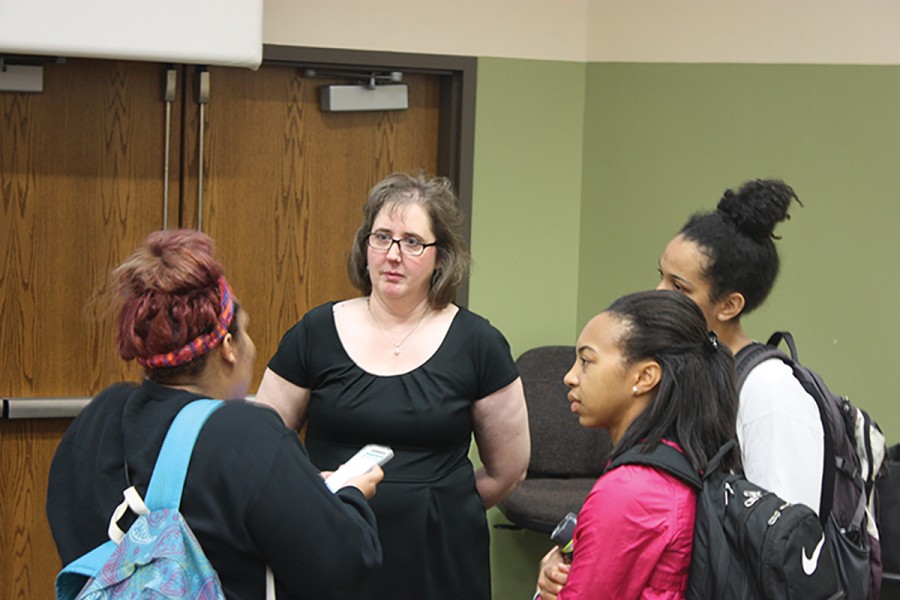Members of campus community meet to evaluate implementation of EDI plan
Chancellor promises to uphold UW-Eau Claire principles amid tensions abroad
More stories from Gabriel Lagarde
Photo by Gabriel Lagarde
More than other campus-wide initiatives, such as the 2008-2016 Centennial Plan, the UW-Eau Claire administration has made a concerted push to foster a campus grassroots discussion and incorporate feedback from the larger Eau Claire community into implementing its EDI goals. Photo from Spring, 2016 EDI Forum.
Despite international tensions, UW-Eau Claire’s push for equity, diversity and inclusivity (EDI) and a unified global education network will not fall by the wayside, not if Chancellor James C. Schmidt has anything to say about it.
Tuesday’s EDI Open Forum in the Dakota Ballroom, Davies Center, served as a reassessment of the more than decade-long initiative. Current EDI fellows, professors Melissa Bonstead-Bruns and Jeff Goodman, gave brief overviews of the 2016 Campus Climate Survey.
Goodman highlighted data indicating widespread disparities between the experiences of marginalized students versus white males on campus and in the community. Bonstead-Bruns reviewed areas of progress and announced the creation of a new administrative position, Assistant Chancellor of Equity, Diversity and Inclusivity, who will oversee campus-wide EDI efforts and monitor its progress.
Student Body President Ashley Sukhu, along with other student leaders, presented anonymous messages from students of color that illustrated inequalities they experience on a day-to-day basis.
But before all that, Chancellor Schmidt took a moment to praise the Eau Claire community and spoke at length regarding increased efforts to promote a welcoming campus. He said the sentiment among faculty is “that the time is now” and the campus is preparing to “aggressively” push to meet its EDI goals in the coming months — despite whatever implications the recent seven-nation immigration ban may entail.
“While we will comply with federal regulations, we will do all we can to support our students and faculty,” Schmidt said. “It does not in any way change our university mission nor our commitment to fulfilling it. Nothing in our mission or core principles have changed.”
The forum offered the opportunity for faculty, administration and students to convene and discuss ways to incorporate EDI language into the greater campus processes — of which, employee performance evaluation forms were of particular note.
Members of the campus community separated into multiple groups based on their roles within Eau Claire: faculty, administrative, students, etc., spent close to an hour examining their differing interpretations of EDI principles and how best to go about implementing them.
While progress was made, Sukhu said even the fastest changes won’t be evident until April, and the majority of EDI initiatives take years to take effect.
“It’s more about a process than people’s apathy or lack of commitment,” she said. “For things like this, when we’re addressing the needs of students, it does feel like it’s a long time, but we have put these processes in place. It takes a long time to get all the university bodies on board with these decisions.”
The current version of the EDI plan outlines five areas of focus and corresponding actions to promote a diverse campus, according to the plan document. These stipulations range from faculty evaluations and communication models to student retention strategies and a long-term goal to enroll 20 percent students of color by 2020.











